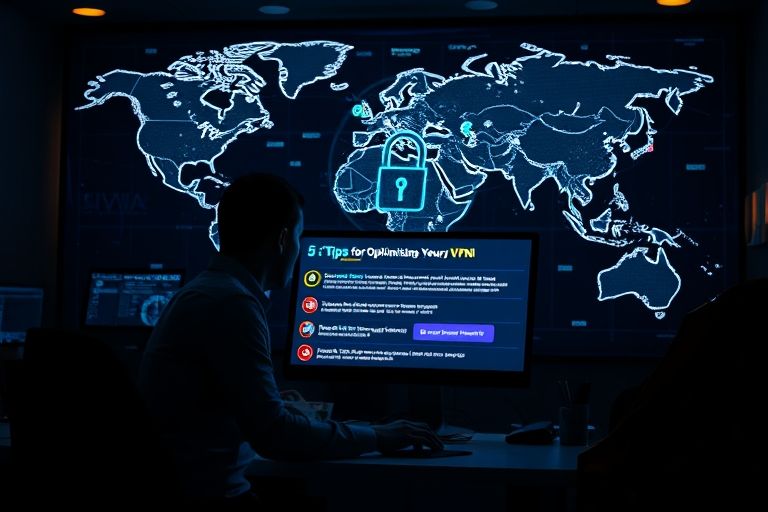
With the increasing number of cyber threats, using a VPN has become a necessity for individuals and businesses alike. A VPN not only encrypts your internet traffic but also masks your IP address, making it difficult for hackers to track your online activities. However, simply using a VPN is not enough. To ensure maximum protection, it is important to optimize your VPN. Here are five tips to help you do just that:
Not all VPN providers are created equal. Some may log your data or leak your IP address, defeating the purpose of using a VPN. To ensure that your VPN is reliable, look for providers that have a no-logs policy, use strong encryption, and have undergone third-party security audits. One example of a reliable VPN provider is NordVPN, which has a strict no-logs policy and uses AES-256-CBC encryption.
A protocol is a set of rules that governs how data is transmitted over the internet. There are several VPN protocols, including OpenVPN, L2TP/IPSec, and PPTP. While OpenVPN is the most secure protocol, it may not be the fastest. Depending on your needs, you may want to use a different protocol. For example, if you are streaming video, you may want to use a protocol that is optimized for speed, such as PPTP.
A kill switch is a feature that automatically disconnects your internet connection if your VPN connection drops. This is important because if your VPN connection drops, your internet traffic will be exposed, making you vulnerable to cyber attacks. Enabling a kill switch ensures that your internet connection is always protected. Most VPN providers offer a kill switch feature, so be sure to enable it.
Two-factor authentication adds an extra layer of security to your VPN. With two-factor authentication, you will need to enter a code in addition to your username and password. This code is usually sent to your phone via SMS or generated by an app. Two-factor authentication ensures that even if someone gains access to your username and password, they will not be able to log in without the code.
Just like any other software, VPNs can have vulnerabilities that are discovered and patched over time. To ensure that your VPN is always secure, make sure to keep it updated. This will ensure that any security vulnerabilities are patched, and your VPN is always up to date.
Stay safe online!